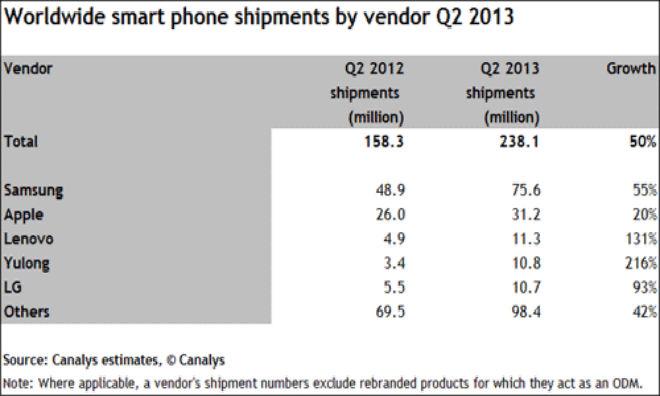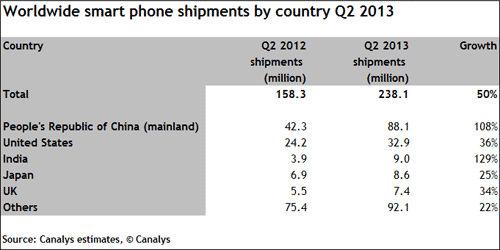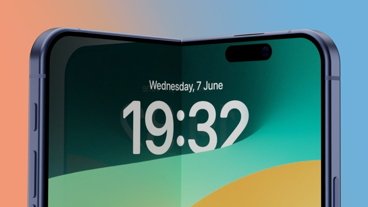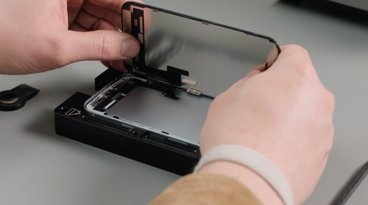Apple and Samsung continue to tower over all other smartphone manufacturers, according to a new study, but a number of Chinese vendors are making some headway as they have home-field advantage in the world's most populous nation.
Industry analysis firm Canalys released its newest figures on Monday, showing that Apple and Samsung combined account for about 45 percent of all smartphones shipped worldwide in the second quarter of this year. Out of the 238.1 million units shipped last quarter, Samsung shipped 75.6 million, while Apple shipped 31.2 million.
Apple's year-over-year shipment growth for the quarter was 20 percent, according to Canalys, while Samsung saw 55 percent growth. Still, those growth numbers pale in comparison to those of the next three largest manufacturers.
Lenovo more than doubled its smartphone shipments year-over-year, going from 4.9 million in Q2 2012 to 11.3 million and third-place among manufacturers this year. Among the top five, Lenovo's 131 percent YoY growth was topped only by Yulong, another Chinese vendor that saw its shipments jump 216 percent from 2012, moving from 3.4 million to 10.8 million.
South Korea's LG also saw considerable growth in shipments. LG moved 5.5 million units in Q2 2012, and 10.7 million in the same quarter for 2013, an increase of 93 percent.
The latest figures illustrate the challenge for Apple going forward. The highest growth in smartphone shipments is occurring in emerging markets, where consumers are less likely to be able to afford Apple's typically premium-priced devices.
China has already surpassed the United States for the world's largest smartphone market, and that nation's 88.1 million shipped units for the past quarter represent 108 percent growth from the same quarter a year ago. India, meanwhile, moved past Japan and the United Kingdom last quarter, growing 129 percent year over year to ship 9.0 million units.
Similarly, markets like Brazil and Russia are increasingly important in the smartphone industry. In addressing these markets, Apple is faced with competition not only from Samsung — which takes a scattershot approach, releasing dozens of models in a year across multiple pricing tiers — but also an array of Chinese vendors. Those vendors — including Lenovo, Yulong, Huawei, ZTE, and Xiaomi — made up 20 percent of worldwide shipments this past quarter, up from less than 15 percent for the same quarter last year.
Apple is widely believed to be preparing a lower-cost iPhone in order to address these markets. The low-cost device is said to sport a plastic chassis and perhaps a less powerful chipset, allowing Apple to save on production costs and offer the device at a price more palatable in developing markets.
Canalys' report also found that Google's Android platform now powers 80 percent of phones shipped worldwide. Apple's iOS holds 13 percent of the market.
 Kevin Bostic
Kevin Bostic


-m.jpg)






 William Gallagher
William Gallagher
 Amber Neely
Amber Neely
 Oliver Haslam
Oliver Haslam
 Thomas Sibilly
Thomas Sibilly
 Marko Zivkovic
Marko Zivkovic

 Wesley Hilliard
Wesley Hilliard
 Malcolm Owen
Malcolm Owen


-m.jpg)






21 Comments
Does this drive to a new Lingua Franca of consumer technology? My AngloAmerican-Centric world view has always clouded my view, but I start to see the possibility of a Chinese-dominant ecosystem evolving out of the fastest growing economy. Maybe not in the next 5 years, but 15? When will we start to see the world in a Mandarin-first modality, and all others translated from that? Or more bluntly, when will the iPhone ship first in China. I don't see India, which still sees an Anglo bias as its pinnacle of class privilege would align with English culture, as a driver in instantiating a new center for global consumer technology. But I could be wrong.
[quote name="AppleInsider" url="/t/158915/apple-samsung-top-q2-smartphone-shipments-but-chinese-vendors-growing#post_2374951"]Canalys' report also found that Google's Android platform now powers 80 percent of phones shipped worldwide. Apple's iOS holds 13 percent of the market.[/quote] Wow. Must visit China to see Android phones then. All my friends have iPhones, only know a few acquaintances who have something else.
Samsungs tizen os makes more sense here - even if they muck it up. Also makes sense for Apple to do something different in this market. I suppose the prize and the stakes are higher here. Be good to know how Samsung, apple, Lenovo figure in the pc world in china and if there is any correlation in purchasing behaviour.
Lenovo is planning to launch high-end phones in the US sometime in 2014.
Their most recent flagship (K900) used X86 Clover Trail+, they also have a Snapdragon 800 device coming later this year.
Numbers don't add up to me.
Google announced in July they hit 1.5 million activations per day. If we're GENEROUS and assume that they sustained that level for all of Q2 2013 (instead of just hitting that number after the quarter) then that gives us 136.5 million devices (1.5 million per day x 91 days). But this includes ALL Android devices, not just smartphones. Apparently there were some 30 million Android tablets also activated in the Q2 2013. So that gives us maybe 106 million Android phones.
So where does this study come up with 238 million smartphones? Take out Android, Apple, Win and BB and we still have some 60-70 million phones un-accounted for. What OS are these phones running? And how come they don't have their own "position" in the chart?
Funny since another study last week claimed there were 176 million Android smartphones in Q2 2013. Considering Google's own claims put a MAXIMUM possible number of phones at 106 million that means they're off by 70 million.
Do these people even bother to double-check their figures?
Edited: Wow, don't know how I missed that last comment. 80% of all phones are Android? 80% of 238 million is 190 million, a FAR CRY from the 106 million according to Google's activations claims.
Or perhaps Canalys is able to figure out how many Android phones were sold that don't even have access to Google Play. That's quite the feat, if in fact true. And if it's true then that means almost half of Android devices sold are so cheap they don't even use Google's services.